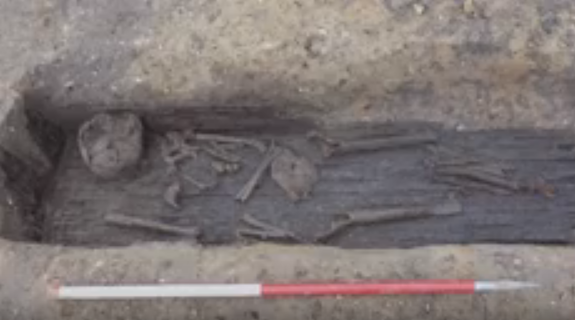
An Anglo-Saxon Cemetery was been discovered in a Norfolk field exposing uniquely preserved coffins that could date back as far as the 7th century. These remarkable coffins were unearthed at Great Ryburgh.
Archaeologists have unearthed 81 exceptionally unique tree trunks used as caskets at from the community graveyard of early Christian Anglo-Saxon. The burial site was located at Great Ryburgh in Norfolk and the extraordinary preservation was because of the water-logged exceptions of the river valley. BBC reported that the diggings on Historic England were conducted before the building of a defense system against the lake and flood.
According to the lead archaeologist from the Museum of London Archaeology, James Fairclough, "The combination of acidic sand and alkaline water created the perfect conditions for the skeletons and wooden graves to survive, revealing remarkable details of Christian Anglo-Saxon burial practices."
It was Archaeologist Matt Champion who first discovered the burial site where he was asked by the landowner, Gary Boyce to put in trial trenches before the construction of the lake and flood defense project. These exposed the high importance of Anglo-Saxon pottery as well as Roman Samian Ware.
To sum it up, 94 graves were discovered which could date from 7th to 9th centuries AD. The 81 coffins were notably preserved well and were discovered after being hidden for more than 1,100 years at a formerly unknown Anglo-Saxon cemetery. The coffins found were made from oak trees that were split in two and were hollowed out to make a space for the corpse with the half serving as a cover, as reported by Mail Online.
The excavation took three months was fulfilled by seven teams from Museum of London Archaeology which conducted the dig in February, May, and June. It was financed by the government heritage agency, Historic England. The diggings also exposed a small wood structure that could be likely an early church or chapel.
The discovery of the burial site from the early Anglo-Saxons sure is a rare find especially the coffins made from two split oak trees. These finds could give more insight into the lives of the early ancestors.



